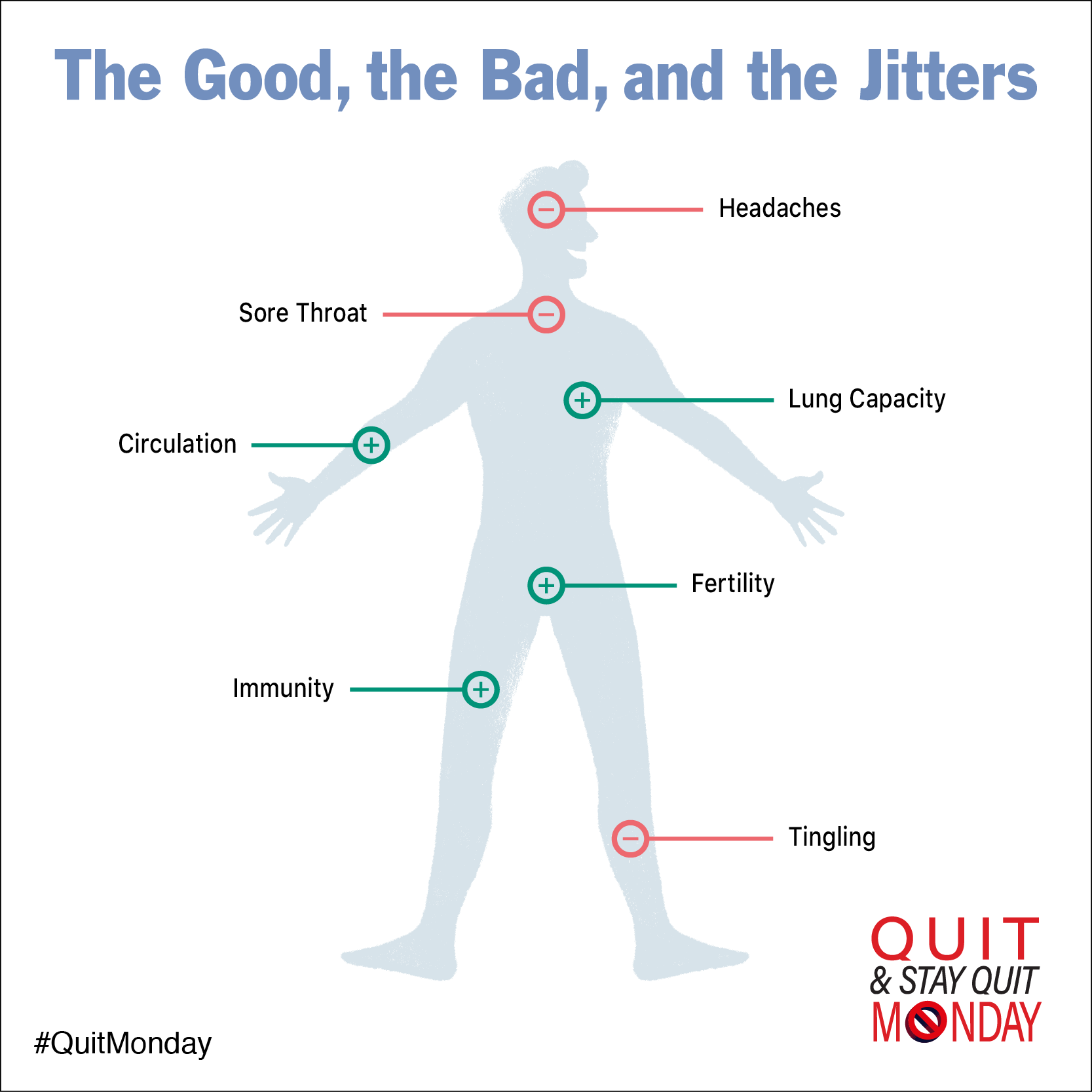Body Talk: The Good, The Bad, and The Jitters
Our bodies are constantly trying to communicate with us.
And we should listen.
Because that nagging cough, shortness of breath, and mild headache are indicators that it’s time to make a change.
After you stop smoking cigarettes — even for as little as 24 hours — the body starts to heal itself. You’ll benefit from more energy, better circulation, and even a boost to the libido. But quitting also comes with some unpleasant physical symptoms, and, if not prepared, these side effects can be both difficult to handle and discouraging.
That’s why we want to prepare you for all the physical symptoms you’ll experience when you stop smoking cigarettes — the good, the bad, and the jitters.
The Good
Breathe Easier: Smoking affects the entire respiratory system including your lungs, windpipe, and voice box. When you stop, your lungs naturally start cleaning out the harmful debris, enabling improved lung function. After only a few days, breathing will become noticeably easier.
Better Circulation: In as little as two weeks, your blood circulation will begin to improve, making physical activities like walking, jogging, or hiking up the stairs that much easier.
Boost to the Immune System: Using tobacco products weakens your body’s immune response, making you more prone to illness. But after you quit, you’ll benefit from increased oxygen levels and lower inflammation, which boost the immune system.
Cleaner Teeth and Mouth: No more yellowish stains on your teeth and gums. Quitting smoking freshens up your breath and mouth.
Improved Sex Life and Fertility: Better circulation means improved blood flow and more sensitivity. Men who stop smoking tend to have longer lasting erections while women report easier arousal. Non-smokers also have an easier time getting pregnant.
The Bad
Headache: It’s common to have headaches and mild nausea as nicotine leaves the body.
Tingling in Extremities: This is actually a good thing. As your circulation improves, you may feel a tingling in your hands and feet.
Coughing: A sign that the lungs are filtering out mucus and that the cilia (tiny hairs found in the lungs) are active again.
Sore Throat: A side effect of your cough, sore throats are temporary and will likely subside after a few days.
Constipation: Since nicotine impacts the colon, it’s normal to feel bloated or constipated as the it leaves the system.
The Jitters
Irritability and Frustration: Because you’re giving up a highly addictive substance and breaking your normal routine, it’s normal to feel slightly irritated and upset. But these feelings pass.
Anxiety: Breaking a habit, especially one that is physically addicting, can be difficult to process. If the anxiety becomes overwhelming, try some talk therapy or other alternative treatments to keep your mood elevated.
Shakiness: The absence of nicotine can cause the hands and fingers to tremble or shake.
